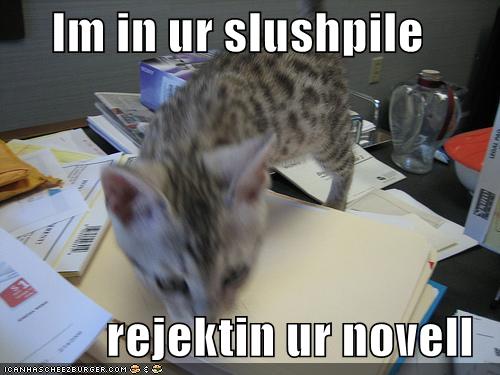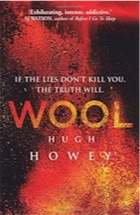Despite the weather, summer is coming fast. So for this week's Sample Sunday, here's an excerpt from my hot summer novel, One Shade of Red. This one introduces the reader to the hero's long-time girlfriend, the girl next door: Kristen.
Argument with Kristen
“Well, look who’s here. Hello,
stranger.” Kristen’s voice had that clipped sneer in it. She
folded her arms across her chest.
I put on my best smile and held out the
flowers from the grocery store. “I finally got the bank account
straightened out. Wanna have something to eat and hang out?”
It had taken a week of text messages,
emails and a fax between me, Nick and the bank before the bank would
give me access to the Pool Geeks account. I could deposit the cheques
as well as take money out. So, finally, I wasn’t paying for the
privilege of working. The first thing I did with the access was take
out a hundred bucks to take my girlfriend out.
Kristen couldn’t suppress her smile
when I held the flowers under her nose, although she tried to.
Finally, she took the bunch and sniffed. “Well, since you brought
flowers ... Where are we going?” She looked up at me, blue eyes
shining through the flowers. Her mouth slowly spread into a smile.
“Why not Mama Toni’s? And my
parents are away for the weekend, so I got a DVD.”
Kristen pretended to think about it for
about two seconds. “Let me put these in some water.”
I stepped inside her house — her
parents’ house — and waited like I had so many times before. Mrs.
Petri came out of the kitchen, wiping her hands on a towel. “Oh,
hello Damian,” she said. “Why don’t you sit down?”
My breath caught whenever I saw Mrs.
Petri — even after all these years. She was the neighbourhood
beauty: tall and fit with bright blue eyes that she had passed on to
her daughter. Her hair was done up high, exposing her long neck, and
she wore a sleeveless t-shirt and short pants. I wondered why she
always showed more skin than her teenaged daughter.
I followed her to the kitchen and sat
at the table; I knew from experience not to sit on the “good
furniture” in the living room. Mrs. Petri poured me a cup of tea
from the pot that was always filled. “Would you like a cookie?”
I took one from the plate in the middle
of the table. Mrs. Petri baked regularly, and I loved her cookies.
That’s how I first made friends with Kristen. When I was five, I
was in a bunch of kids who came over to the Petris’ to play. I went
back for the cookies. Through school, Kristen and I alternated coming
over to each other’s houses for homework and other activities. I
preferred being at her place, sitting at her mother’s kitchen table
and munching on cookies. Those cookies were all that got me through
long division in Grade 3 and A Separate Peace in high school.
I ate three cookies before Kristen
returned from upstairs, dressed in her going-out-for-cheap-dinner
clothes: khaki pants, a scoop-neck blouse and sensible shoes. She
had tied her long, straight brown hair into a pony-tail. Kristen
resembled her mother in her blue eyes and symmetrical, delicate
features, but she was smaller, shorter. She was like a pretty doll:
perfect and fragile. The prettiest girl in my grade, she was more for
looking at than holding.
“Thanks for the cookies, Mrs. Petri,”
I said as Kristen pulled me to the front door.
Mr. Petri came in from the garage at
that point. “Where are you going?” he asked.
“I’m taking your daughter out for
dinner and a movie,” I answered as cheerfully as I could, but I
dreaded the response I knew was coming.
“You know you’ll never save money
for university if you keep eating in restaurants,” he said. “A
boy your age who lives on his own should know how to cook for
himself.”
“Oh, Daddy,” Kristen said, pulling
me out the front door.
“It’s alright, Mr. Petri,” I
said, trying to sound casual and relaxed. Short but with broad
shoulders and muscles that rippled in his lower arms, Mr. Petri
always made me feel nervous and inadequate. Come to think of it, so
did his daughter.
“I just got paid by three different customers.”
I knew what he was going to say next:
“You should save that money in a bank. You never know what you
might need tomorrow.”
“Oh, Daddy,” Kristen repeated and
pulled me out the door.
“Be sure to have her home by
midnight!” Mr. Petri called after us. And of course, it took three
attempts to get my car started as Kristen’s father watched us from
his front porch. By the time I could pull away from the curb, my face
was burning.
Kristen and I could never agree on Mama
Toni’s restaurant : I thought it was expensive; she thought it was
cheap. Of course, she never paid for the food. She thought it was a
quaint little place with mementos and pictures from Italy and New
York on the walls; I pointed out that it was part of a chain and was
owned by a foodservice corporation in Philadelphia. But we both liked
the food and I liked to show off just a little by drinking Italian
beer — which cost over seven bucks a bottle.
Hell with it: I felt the pool-cleaning
cash burning a hole in my pocket.
Kristen ate about a quarter of her
plate of pasta; she refused wine on principle and sneered at me every
time I took a sip of my Moretti.
“So where are your parents tonight?”
she asked while we waited for the bill.
“Up at the cottage for the weekend.”
“Why didn’t you go with them?”
“I don’t live with them anymore,
Kristen. I’m a grown-up now. So are you. Besides, this way we have
their whole house to ourselves.”
She narrowed her eyes at me. “I
thought you said you didn’t live with them anymore.” She sipped
her water delicately. Even though she could be judgemental and
fucking annoying, she was very pretty in a delicate, little-girl way.
A little too thin, maybe. She’d like it if I said that. She worked
hard to keep her weight down.
“I do have a key to the front
door. So we can watch the 50-inch plasma in full theatre-surround
sound.”
She dabbed her lips with her napkin,
then folded it carefully to cover the food left on her plate, as if
she couldn’t bear to look at it anymore. “What DVD did you get?”
“Fight Club.”
“What? Why?”
“Hey, it’s the perfect couples
movie.” I had been waiting all day to say this. “For the ladies,
Brad Pitt gets naked. For the men, big, fat, ugly guys beat him up.
What more could you ask for?”
I thought it was pretty funny. I still
do.
What did you think? Leave a comment!
One Shade of Red is available on

























